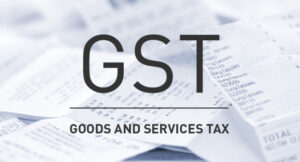Financial Statements Explained
As a business owner or investor, it is important to keep a close tap on the company's financial health. This allows you to know how profitable the business is and also if the business has the ability to meet its near term debt obligations. As the business seeks financing or government grants, the institutions will also require the business to furnish their profitability report for the past years.
By doing regular bookkeeping and keeping proper accounting records of your business activities, you will be able to generate periodic financial statements. The holy trinity of financial statements is namely the balance sheet, profit and loss statement and cash flow statement.
Balance Sheet

The balance sheet is akin to taking a snapshot of the business. It shows the financial health of the business at any given point in time. On the balance sheet, you will see 3 main categories, namely assets, liabilities and equity.
Total Assets = Total Liabilities + Total Equity
Let me do a simple overview of each of these 3 categories.
Assets are anything of value or resource owned by the company. Common items include cash in banks, inventory, trade receivables, plants, property and equipment.
Liabilities are monies owed by the company to external creditors. Common items include trade payables, short and long term loans.
Equity is the sum of the paid-up capital and the retained earnings of the company.
Ideally, the balance sheet should reflect a strong positive net asset. This will mean that company has no issue meeting their debt obligations and there are still surplus generated to be distributed amongst the shareholders.
Profit and Loss Statement

The profit and loss statement shows you the profitability of the business over any given period of time. Usually, we generate profit and loss statements for review on a monthly, quarterly and yearly basis. On the profit and loss statement, you will see how much sales the business generates and also what are the major expenses it has incurred in the operation. What you want to see if a growing net profit number over the years.
Total Sales - Cost of Sales - Expenses = Net Profit (before tax)
By comparing profit and loss statements over different periods, you will be able to tell if the business is actually growing or dying. This is usually of particular interest to investors who are looking to come on board.
You will also need to refer to the profit and loss statement for your early corporate tax reporting purposes.
Cashflow Statement

Last but not least, the cash flow statement helps you to verify the profit and loss statement. Especially for small businesses, oftentimes, the lack of cash flow is the biggest problem. The business may show very impressive profitability for the year but the inability to get paid on time may result in negative cash flow for the business.
The cash flow statement measures how well a company manages its cash position, meaning how well the company generates cash to pay its debt obligations and fund its operating expenses.
To sum it up, there is no point in showing profitability when you are not able to stay afloat to pay off expenses in the near term. Those receivables will eventually become bad debts.
To fully stay on top of how your business is doing, it is important to review your financial statements regularly. Identifying potential red flags early can help you go a long way. Need help with your company's financial statements? Consider engaging the service of a professional accountant in Singapore!
Download the Telegram app and follow us for the latest updates: https://t.me/sgcompanyservices
A Guide To Singapore Goods And Services Tax (GST)
A Guide To Singapore Goods And Services Tax (GST)

Goods and Services Tax (GST) is a consumption tax broadly imposed on the supply of goods and services and importing of goods into Singapore. In other countries, GST is can also be known as Value Added Tax (VAT).
There are, however, GST exemptions to the provision of most financial services, the supply of digital payment tokens, the sale and lease of residential properties and the importation and local supply of investment precious metals.
Goods that will be exported and international services are zero-rated.
Who Needs To Register For GST?

As of the time of writing this article, GST is taxed at 7%. If your company is GST registered, you are required to charge an additional 7% GST on whatever is your selling price. The GST collected will be paid to the Inland Revenue Authority Of Singapore (IRAS) on a quarterly (calendar) basis whenever your company is doing GST filing.
Your company will be required to register for GST if:
- At the end of any calendar year, your taxable turnover is exceeding S$1 million, or
- You are reasonably expecting your taxable turnover to be more than S$1 million in the next 12 months.
Voluntary GST Registration

There will be times when a business is not required for GST registration, and yet wish to do so voluntarily. Provided that the business satisfies any of the following:
- Your business makes taxable products or supplies
- Your business produces only out of scope supplies. Out of scope supplies mainly refer to sales of goods that did not enter Singapore and goods in transit
- Your business makes exempt supplies of financial services that are also international
- Your business procures services from overseas service providers and you would not be entitled to full input tax credit even if you are GST registered
You may register for GST voluntarily even if you have not begun operations. But you will need to satisfy IRAS that you have firm intentions to carry out any of the above.
Benefits and Drawbacks of GST Registration

The biggest benefit of being GST registered will be your business's ability to reclaim the GST incurred on your purchases (e.g. costs of goods). However, there are also conditions attached to being a GST registered business that you should consider:
- You are obligated to remain GST registered for a minimum of 2 years
- You must file GST returns punctually, failure to do so will have financial penalties and imprisonment, if serious enough
- Keep proper records for a minimum of 5 years
- If your suppliers are not GST registered, you will not be able to claim any GST
- You must charge your customers with GST. But if your customers are not GST registered, this will make your prices unattractive
- Exporting of goods or provision of services to overseas customers will not be GST chargeable
- It is a criminal offence if you are found liable for collecting GST wrongfully
Our team of accounting specialists are here to assist with your GST registration and filing of GST. Contact us today to find out more!
Download the Telegram app and follow us for the latest updates: https://t.me/sgcompanyservices
Foreigners’ Guide To Set Up Company In Singapore
If you are a foreigner looking to start your business in Singapore, this is the guide for you to set up a company in Singapore.
Before you get started, it is important you consider the various corporate structure set-up available. As a foreigner, you can consider setting up your business via an exempt private limited by shares company or a partnership. For today’s article, we will be focusing on the requirements and steps to set up an exempt private limited by shares company.
1. Determining the Company Name
Start first by deciding on a suitable name for your company. Avoid using contentious words such as names of famous people or countries or anything that may potentially infringe on other’s trademarks. Doing so may result in rejection or delay in approval and this will, in turn, delay the time required to get your company up and running.
We always recommend our clients to come up with 3 preferred choices and apply to have any 1 of the names approved.
Once this is done, you may then be able to proceed to incorporate the company.
2. Determining the Type Of Company
This is probably the most important step in the guide to set up a company in Singapore. You can choose between a private company limited by shares, an exempt private company, a public company limited by shares or a public company limited by guarantee. This is very much dependent on the number of shareholders the company will have and the type of shareholders (whether if there is any company that is a shareholder).
If you are setting up a charity or non-profit organisation, then your choice will be to set up a public company limited by shares.
For most of our clients, an exempt private company will be the best fit for their purpose. You can have up to 20 shareholders whereby all of the shareholders must be natural persons.
3. Appointment of Directors and Company Secretary
In order for the company to function, the company must have on board at least 1 director and 1 company secretary.
A company director is an officer appointed to run the company on behalf of the shareholders. He/She must at all times, act in the best interest of the company.
The director must be at least 18 years of age and in good legal and financial standing.
Do note that the company must have at least 1 local resident in Singapore as a director. Local resident refers to someone who is a Singapore Citizen, Singapore Permanent Resident, Entrepass holder or Employment Pass holder.
As a foreigner setting up a company in Singapore, you will need to appoint at least 1 director who is a local resident in Singapore. If you do not have anyone suitable, you can decide to engage a nominee director service.
Within 6 months, the company must also appoint someone as a company secretary. The company secretary must be a natural person who is locally residing in Singapore.
Someone who is serving as a director may also take on the role of a company secretary for the company, provided there are at least 2 directors in the company.
If you engage us for your company incorporation, we will serve as your company secretary.
4. Shares and Shareholders
The company requires at least 1 shareholder. As a foreigner, you are allowed to be the 100% sole shareholder of the company.
You need to decide on how many shares to be issued upon incorporation. Minimum is SGD $1.
When you get more investors in the future, you can increase the issued shares of the company to be distributed out to vested parties.
5. Registered Office
All local companies in Singapore must indicate a registered office with a local address. This is the place to receive all the company's important correspondences. Also, this is where you keep all the important documents and registries of the company.
This registered address must be accessible to the public during office hours. It may or may not be the same address whereby your business is operating.
6. Company Constitution
The constitution is a legal document that specifies how the company will be governed, rights and obligations of the various stakeholders of the company. Unless there are specific needs, we recommend the usage of the model constitution provided by ACRA.
7. Financial Year End
You will also need to determine the financial year-end of the company. This date will decide when your company have to do annual return filing. This can be changed subsequently.
8. Business Activity
During incorporation, you will need to state down the business activities whereby your company will be engaging in. There is a pre-determined list that you can choose from. For certain trades, you may need to secure additional licenses from the relevant government department before you can begin operating.
9. Company Bank Account Opening
The opening of a company bank account can only be done after the company has been successfully set up.
For foreign-owned companies, the checks conducted by the banks are a lot more rigorous. But nevertheless, it is possible and many of our foreign clients have successfully opened their company bank account.
Getting Ready To Submit Application To Incorporate New Company
Before the submission is proper, it will be important that you first consider the points stated above. Thereafter, you should have the personal documents of the stakeholders ready. These include passports, address verification etc.
As a foreigner, you will need to engage a registered filing agent to do the incorporation on your behalf.
We hope you find this guide to set up a company in Singapore useful. If you would like to find out more about the cost of setting up a company in Singapore, get in touch with us today!
Download the Telegram app and follow us for the latest updates: https://t.me/sgcompanyservices
What is Cloud-Based Accounting Software?
As a business owner, accounting is a very time-consuming yet critical activity that you have to do. You will be able to analyse your business performance with the necessary data at your fingertips if you start off with proper bookkeeping from day 0. In today’s market, the use of cloud-based accounting software is gaining popularity. We explore the various advantages below.
Accessing Your Financial Data, Anywhere and Anytime
In the past, most businesses will be using either an excel spreadsheet to do their accounts or purchase an accounting software licence.
The biggest problem with this option is that the data is entirely offline. Cloud-based accounting software allows you to access financial data via an app or web browser so long as you have a working internet connection.
It allows you to issue invoices or record bills on the go.
It Is Now Easy To Collaborate
Continuation from point 1 above, cloud-based accounting will mean you can have multiple users access to the accounting data at the same time. And you are not limited by location.
For most small businesses, it is very common that they outsource their accounting work to third party accounting firms. Now, you can grant limited access to multiple users to assist you in your bookkeeping with cloud-based accounting software.
Time-Saver With Automation
If you have invoices that you need to bill your clients in the near future, or perhaps to invoice clients on a recurring basis, you can do all these with cloud-based accounting software.
Improvement of Your Business Workflow
Cloud-based accounting software can do a lot more as compared to using an excel sheet. Amongst the commonly used accounting software features, you can add modules to assist you with various tasks of your business. Such as GST computation, human resource management or payroll accounting.
It can be as holistic yet simple, and sophisticated as whatever your business requirements are.
The formulas are all pre-programmed and all you need to do is just ensure that the data input is accurate.
Readily Available Technical Support
The majority of cloud-based accounting software is on a subscription basis, as such these companies will readily give continuous and robust technical support if you encounter difficulties. A few of the accounting vendors actually run regular webinars to teach users how to use their software effectively.
Cybersecurity and Disaster Recovery
Many people have fears about storing their information in the cloud. In actual fact, it is a lot more secure than you think. Storing the data in a cloud will prevent you from losing your data in the event of a fire or accident destroying your physical drive (such as computer viruses corrupting your files).
In conclusion, it is important to utilise software that is compliant with the accounting reporting standards in Singapore. Our team of Accountants are recognised globally and locally. We do provide a full suite of accounting services for your business needs and we tie up with the major cloud-based accounting vendors in Singapore. (Xero, Financial, Quickbooks, etc) Talk to us today!
Download the Telegram app and follow us for the latest updates: https://t.me/sgcompanyservices
Entrepass: A Visa Program For Foreigners Setting Up Business In Singapore
To set up a business in Singapore as a foreigner, you can apply for Entrepass which allows you to stay in Singapore while running the business. It is a visa program for foreigners.
In this article, you will get a general understanding of how it works and how do you go about applying for the Entrepass.
Unlike employment passes (EP) or work permits (WP), there is no minimum salary and no quota to meet for the employment of foreign workers.
If you are successful in the application of an Entrepass, you can apply for your family members to join you in Singapore subsequently.
Who Will Be Eligilble For Entrepass?
Entrepass is open for all nationalities. The main target demographics are experienced investors, serial entrepreneurs and high calibre innovators who are keen to set up their businesses in Singapore.
There are some additional conditions to be fulfilled:
- Have started or intend to start an exempt private company limited by shares, registered with the Accounting and Corporate Regulatory Authority of Singapore (ACRA).
- If already registered, the company must be within 6 months old at the time of application
- If yet to be registered, you can do so after the outcome of the application
- Meet any of the following criteria for the application as an entrepreneur, innovator or investor.
- Entrepreneur
- Has funding from a government recognised Venture Capital (VC) or business angel
- Is an incubatee at a government recognised incubator or accelerator
- Has an entrepreneurial track record and business network
- Innovator
- Owns an intellectual property (IP)
- Has research collaboration with a research institute or an institute of higher learning (IHL) in Singapore
- Extraordinary achievements in key areas of expertise
- Investor
- Has an investment track record
- Entrepreneur
Are All Types of Businesses Eligible?
No, some businesses are ineligible for Entrepass. Here is a list:
- Hawkers Centres, food courts, coffee shops
- Nightclubs, karaoke lounge, bars
- Massage parlours, foot reflexology
- Traditional Chinese medicine, acupuncture, herbal dispensing business
- Employment agency
- Geomancy business
How Can I Bring My Family Members Over With Me?
You can apply for your family members to join you in Singapore. However, it is subjected to your business meeting the local jobs creation quota and minimum spending.
- Spouse and/or children
- Total annual business spending of S$100,000 minimum
- Employ a minimum of 3 full-time employees (Singaporeans and Permanent Residents drawing a salary of at least S$1,300 per month, and received CPF for 3 months at least) or 1 local professional, manager or executive (Singaporean or Permanent Resident earning S$3,600 minimally per month and received CPF for 3 months at least)
- Parents
- Total annual business spending S$200,000 minimum
- Employ at least 6 full-time employees or 2 local professional, manager or executive.
You can then submit an assessment for eligibility to the Ministry of Manpower (MOM). If successful, you may then proceed to apply for Dependant’s Pass (DP) or Long Term Visit Pass (LTVP).
What Is The Duration Of The Entrepass?
The Entrepass will have a validity of 1 year for the first application and likewise for the 1st renewal. Subsequently, it is valid for 2 years for each future renewal.
Is Entrepass Renewable?
Yes, it is. Subjected to the renewal criteria for total business spending and the number of local jobs created. 3 months prior to the expiration of your current pass, you can apply for renewal.
If you would like to find out more about Entrepass and apply for one, talk to our team of visa experts today!
Download the Telegram app and follow us for the latest updates: https://t.me/sgcompanyservices
Personalised Employment Pass: A More Flexible Singapore Work Visa For High Income Foreign Professionals
As a high income earning foreign professional, you can apply for a personalised employment pass (PEP). It will give you plenty of flexibility to scout for the best available opportunity since the PEP is not tied down to any company in particular. You are allowed to continue staying in Singapore for up to 6 months in between jobs so you can better evaluate your employment choices.
The PEP is a significant upgrade on the Employment Pass (EP) as it is not necessary to re-apply for a new pass when you switch employers. All you need to do is to notify the Ministry of Manpower (MOM).
In general, there are no limitations on the type of work you can apply for, except to comply with the necessary requirements for practice in certain specialised trades, such as law, medicine etc.
Who Is Eligible For PEP?
You can apply for a PEP if you are:
- An overseas professional with a last drawn salary of S$18,000 minimum per month. This must be within the last 6 months from the date of your application.
- An EP holder drawing a fixed salary of S$12,000 minimum per month.
Do note that you are disallowed from setting up a business while you are on PEP. If you have the intent to do so, you should apply for an Entrepass instead.
Can My Family Members Come Over?
Yes, they can. You can either apply Dependent’s Pass (DP) or Long Term Visit Pass (LTVP) for them to come over to Singapore with you.
How Long Is The PEP Valid For?
The PEP issued has a validity of up to 3 years. Take note that the PEP is non-renewable. After expiration, if you wish to continue working in Singapore, you may then apply for an EP or S-pass.
Important Things To Note
As a PEP holder, you need to notify the Ministry of Manpower (MOM) of any changes in your employment status, salary etc. You need to take note of any changes of the things listed below and notify MOM.
- Any change in employer or employment status
- To notify MOM within 7 days
- Any change in local person’s contact details
- To notify MOM within a week
- Declaration of annual salary
- Declaring annual salary to MOM at the end of every calendar year (30 days grace period)
- Any change in the residential address
- Updating MOM of your new address within 2 weeks of changing home address
- Any changes in personal particulars
- Any changes to your passport, name or marital status have to be updated with MOM.
How Do I Apply For PEP
The time needed for the application to be processed will take an average of 8 weeks. When it is approved, you will receive an in-principle approval letter via email. After which, you have to come to Singapore within 6 months to have the pass issued.
If you would like to secure your PEP, talk to our team today. We will guide you through the entire process and also apply passes for your family members as well.
Download the Telegram app and follow us for the latest updates: https://t.me/sgcompanyservices
Global Investor Programme - Fast Track To Singapore Permanent Resident Status
Any performing entrepreneur or global investor can consider enrolling on the Global Investor Programme (GIP) for their family to relocate to Singapore. This initiative is administered by the Economic Development Board of Singapore (EDB), which is actively looking for foreign individuals who intend to make Singapore their base for business and investments growth. This is a fast track process for business owners who fulfil the criteria to obtain a Singapore Permanent Resident (SPR) status.
Qualifying For The Global Investor Programme
To apply for the GIP, you must qualify in one of these 4 categories.
- Established Business Owners
- Next-Generation Business Owners
- Founders of Fast-Growth Companies
- Family Office Principals
Let us go through briefly what are the qualifying criteria for each of these categories.
Established Business Owners
- Must have at least 3 years of entrepreneurial and business track record;
- You currently own and operate a company with a turnover of at least S$200 million annually, in the year immediately preceding your application, and at least S$200 million annually on the average, for the past three years immediately preceding your application;
- If your company is a privately owned company (exempt private company limited by shares), you should own at least 30% shareholding in your company; and
- Your company must be engaged in at least one of the qualifying industries*.
Next-Generation Business Owners
- Your immediate family must own at least 30% shareholding or basically the largest shareholder in the company that you are using to qualify;
- This company’s turnover must be at least S$500 million (annual) in the year immediately preceding your application, and at least S$500 million annually on the average for the past three years immediately preceding the application;
- You must be on the company's management team (for example C-Suite and/or Board of Directors); and
- Your company must be engaged in at least one of the qualifying industries*.
Founders of Fast-Growth Companies
- You must be one of the largest individual shareholders and founder of a company with a valuation of at least S$500 million;
- Reputable venture capital and/or private equity firms have to be invested in your company; and
- Your company must be engaged in at least one of the qualifying industries*.
Family Office Principals
- You must have a minimum of 5 years experience in entrepreneurial, investment or management track record; and
- You must have a nett investible assets of S$200 million at the minimum (excluding real estate)
Investment Options Under The Global Investor Programme
If you qualify under one of the 4 categories mentioned above, you have 3 investment options to choose from going into the programme.
To invest a sum of S$2.5 million in
- either a new business entity or in the expansion of an existing business operation.
- a GIP fund that invests in Singapore based companies.
- a new or existing Singapore based single family office having Assets Under Management (AUM) of a minimum of S$200 million.
The Global Investor Programme Application and Approval Process
A typical application will take anywhere from 9 to 12 months to process. After passing the initial phase of the due diligence check, EDB will extend an invitation to you for an interview.
If the interview results are satisfactory, thereafter the Immigration & Checkpoints Authority of Singapore (ICA) will issue an approval in principle status (AIP) to you. The AIP validity is 6 months. You must make the necessary investment under one of the options stated above that you have chosen within the 6 months.
Once you have made the investment and EDB has verified it, ICA will issue a final approval letter, that allows you 12 months to formalise your SPR status in Singapore.
Can I Include My Family Members In The Application?
On the date of application, you can include your spouse and children below the age of 21 who are single as dependants.
Whereas your parents and single children above 21, can only apply for a Long Term Visit Pass (LTVP) which is tied to the validity of your Re-Entry Permit.
Renewal Of Permanent Resident Status
After you have obtained SPR status, you are issued a Re-Entry Permit (REP) with a validity of 5 years. This REP will enable you to maintain your SPR status even when you are not in Singapore.
You can renew your REP and SPR status if you can meet all the renewal conditions set forth by EDB in the 5th year of your SPR status.
*List of Qualifying Industries Under The GIP
- Aerospace Engineering
- Alternative Energy / Clean Technology
- Automotive
- Chemicals
- Consumer Business (e.g. flavours and fragrances, food ingredients, nutrition, home and personal care)
- Electronics
- Energy
- Engineering Services
- Healthcare
- Infocomm Products and Services
- Logistics and Supply Chain Management
- Marine and Offshore Engineering
- Media and Entertainment
- Medical Technology
- Nanotechnology
- Natural Resources (e.g. metals, mining, agri-commodities)
- Safety and Security
- Space
- Shipping
- Pharmaceuticals and Biotechnology
- Precision Engineering
- Professional Services e.g. consulting, design
- Arts Businesses (visual arts businesses, performing arts businesses)
- Sports Businesses
- Family Office and Financial Services
Download the Telegram app and follow us for the latest updates: https://t.me/sgcompanyservices
A Private Limited Company or Sole Proprietorship?
In my last article, I blogged about the pros and cons of having a private limited company versus a limited liability partnership in Singapore. Recently I received an enquiry about whether it is better to set up a sole proprietorship or a private limited company.
So in this article, I shall dissect the pros and cons of having a sole proprietorship versus a private limited company in Singapore. And again, I shall be looking at this comparison via the following 4 areas:
- Ease of Set-Up and Maintenance
- Scope of Liability
- Tax Rates
- Ownership Structure
Ease of Set-Up and Maintenance
Without a doubt, setting up and maintaining a sole proprietorship is so much easier in comparison. The government fee payable for a sole proprietorship is SGD65 versus SGD315 for setting up a private limited company exempted by shares.
Sole proprietor as the name suggests requires just 1 person to set up. Annual renewal of the business entity is just a simple act of applying and paying renewal fees to ACRA. On the other hand, a private limited company will require the shareholders to appoint directors and a corporate secretary to run the company. There are also annual obligations that the company will need to perform to the authorities such as filing annual returns. This means more cost to the company when it comes to yearly renewals with ACRA.
Scope of Liability
In a sole proprietorship, the individual is fully liable for any issues arising in his conduct of the business. In the event of a debt default, the creditors can lay claim on the individual's personal assets. For a private limited company, the risks rest on the company and the shareholders' exposure is their investment in the company.
Tax Rates
Just like a partnership, the business owner of a sole proprietorship pays tax on a personal level. The personal income tax rate in Singapore is up to a maximum of 22%. The profits of the private limited company are subjected to the corporate tax rate. This currently stands at a flat rate of 17%. While this 17% may seem high, companies in Singapore enjoy various tax exemptions offered. For example, a new start up get to have tax on 75% of their first S$100,000 profits waived for the first 3 years.
Ownership Structure
The nature of a private limited company allows the allocation of new shares to new shareholders. This means the owner of the company can seek extra funding by the partial sale of the company. It is up to the existing shareholders to decide how much controlling stake they wish to dilute. Whereas for a sole proprietorship, you have to wholly pass on the ownership of the business in the event of a sale.
Conclusion
My personal opinion is that if you are in the business for the long haul, there are more pros to having a company. You get to enjoy tax exemptions, limit your liabilities and also have the flexibility to seek extra funding when required.
And not forgetting, as a company, you can also be eligible for the many government grants that are available to help boost your business. These grants are typically not eligible for a sole proprietorship.
If you are a foreigner, your only choice between a private limited company and a sole proprietorship in Singapore is the former. As a foreigner, you can be the sole shareholder and have 100% control of the company. The only requirement is to appoint a local director in the company.
With a private limited company in Singapore, you can also have the opportunity to apply for an employment pass for yourself and your family members in order to work in Singapore. This is not possible with a sole proprietorship.
Ready to set up a company in Singapore today? Get in touch with us to ensure a smooth incorporation process!
Download the Telegram app and follow us for the latest updates: https://t.me/sgcompanyservices
An Overview Of The Singapore Employment Pass
Foreigners are who qualified as professionals, managers, and executives will need to obtain a valid employment pass (EP) if they wish to gain employment in Singapore.
To qualify for an EP, the foreign professional has to satisfy the following criteria:
- He or she has got a job offer in Singapore
- Working in a managerial, executive or specialized position or role
- Earn a fixed salary of at least S$3,900 per month
- Have good or reputable qualifications, normally a good university degree, professional qualification or some form of specialized skills
The EP is open to all nationalities and every application will be assessed on the application's own merits.
The EP issued can be valid for up to 24 months and can be renewed, subjected to review.
An EP holder can also apply for their family members to join them in Singapore via a Dependant’s Pass (DP) or Long Term Visit Pass (LTVP). The additional criteria is that for the EP holder must be earning at least S$6,000 per month. There are some new changes to the requirements of getting an EP starting from September 2020, you can read more about it here.
The application for the EP can be done via a licensed employment agency in Singapore or the employer themselves.
Find out more about applying for an EP and get in contact with us today!
Download the Telegram app and follow us for the latest updates: https://t.me/sgcompanyservices
An Overview Of The Singapore Dependant's Pass
Employment pass (EP) or S pass holders can get their spouses and children to join them via the dependant’s pass in Singapore. We received many questions from our clients regarding the application for a dependant's pass. Below we attempt to answer some of the more frequently asked questions.
Who are eligible?
Legally married spouse or unmarried children under 21 years of age. The EP or S pass holder has to be earning a fixed salary of at least S$6,000 monthly.
What is the duration of the pass?
Up to two years, depending on the validity of the main pass.
Is it renewable?
The dependant’s pass is renewable, up to 6 months before it expires. The renewable duration is in line with the main pass’s validity period or the requested duration, whichever is shorter.
Can the dependant's pass holder work in Singapore?
Dependants of employment pass holders can apply for a Letter Of Consent (LOC) to work in Singapore. For dependents of S pass holders, a work permit will be required. However, starting from May 2021, dependant's pass holders who wish to work will have to apply for a work pass instead of LOC. More details will be announced soon.
How can I apply for the dependent’s pass?
Only your employer can apply for a dependant’s pass for you or a Singapore licensed employment agency such as us. Get in touch with us today if you would like to apply for your depandant’s pass!
Download the Telegram app and follow us for the latest updates: https://t.me/sgcompanyservices










